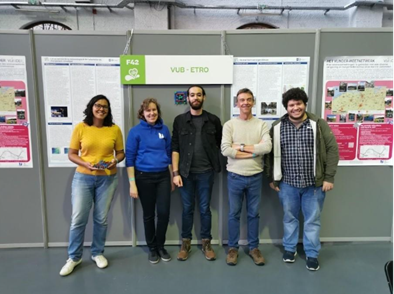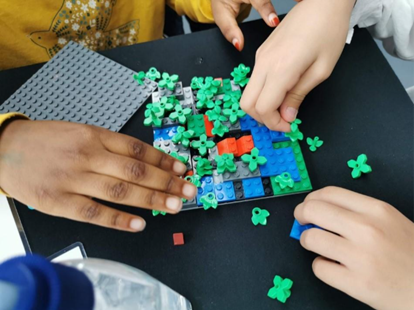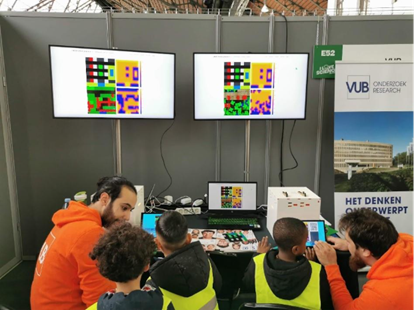Researchers Andrei Covaci, Firass Kooli, Lesley De Cruz, and Sara Top, affiliated with the Vrije Universiteit Brussel (VUB), the Royal Meteorological Institute of Belgium (KMI), Ghent University (UGent), and the Research Foundation Flanders (FWO), have won the 2025 Science Communication Award with their accessible and interactive workshop "Instant Urban Climate Model with AI." The workshop was developed at VUB with funding from Innoviris as part of the I Love Science Festival. The concept emerged from inter-institutional collaboration, with major contributions from students of VUB and Karel de Grote University College (KdG), under the guidance of Geert De Paepe.
Temperatures in urban areas are often higher than in rural regions due to asphalt, buildings, human activity, and limited vegetation, a phenomenon known as the urban heat island. As the majority of the world’s population now lives in cities, many people are exposed to these higher temperatures. Heat can cause health problems, and during heatwaves, extreme temperatures may even lead to excess mortality. With climate change expected to bring more hot days and extreme heat, urban areas face an additional challenge from the heat island effect. Therefore, it is crucial to design cities that stay cooler and remain livable.
LEGO and AI make urban climate tangible for young people
In the workshop, participants use LEGO bricks to explore how land use affects urban temperature. For example, they can observe that converting parking lots into green parks lowers the average temperature of their LEGO city. Through playful, hands-on learning, young people discover how urban design influences temperature and livability, while also reflecting on sustainable solutions such as depaving and creating green spaces.
AI calculates the temperature of the LEGO city in real time
The workshop is based on cutting-edge urban climate research and uses artificial intelligence (AI) to instantly calculate and visualize the temperature of the fictional LEGO city. The LEGO model is placed in a specially designed box where a photo of the panel is taken. AI then converts this image into a land-use map by identifying the colors of the LEGO bricks. Using this land-use map, the system instantly calculates the temperature with an urban climate model. To develop the model, the researchers applied machine learning and real data from the VLINDER network (UGent–KMI), which monitors weather data across diverse environments, rural areas, city centers, industrial sites, forests, dunes, and more.
Award ceremony at the Palace of the Academies
The Royal Flemish Academy of Belgium and the Young Academy honor the researchers for their unique approach to engaging audiences of all ages and backgrounds across Flanders and Brussels, including those who rarely encounter science. The award ceremony will take place on November 19 at the Palace of the Academies in Brussels. The event celebrates not only their individual achievements but also the vital role of science communication in society.
Eos Audience Choice award
The researchers are also nominated for the Eos Audience Prize, and it will soon be possible to vote for them.

From left to right: Lesley De Cruz (KMI, VUB), Sara Top (UGent-FWO), Firass Kooli (VUB), Geert De Paepe (KdG, VUB), en Andrei Covaci (VUB).

Children build a climate-resilient LEGO city

Children examine how and why the temperature of their city changed by comparing the first and second setups.
More info:
-
Website Innoviris: https://www.innoviris.brussels/
-
VLINDER measurement network: https://vlinder.ugent.be/dashboard/
-
Royal Flemish Academy of Belgium and the Young Academy: https://www.kvab.be/prijzen/jaarprijzen-wetenschapscommunicatie
-
EOS Audience Choice Award (voting will soon be possible): https://www.eoswetenschap.eu/publieksfavoriet2021
Contact
Andrei Covaci
+32 477 76 25 65
andrei.covaci@vub.be
Sara Top
+32 492 73 83 68
sara.top@ugent.be